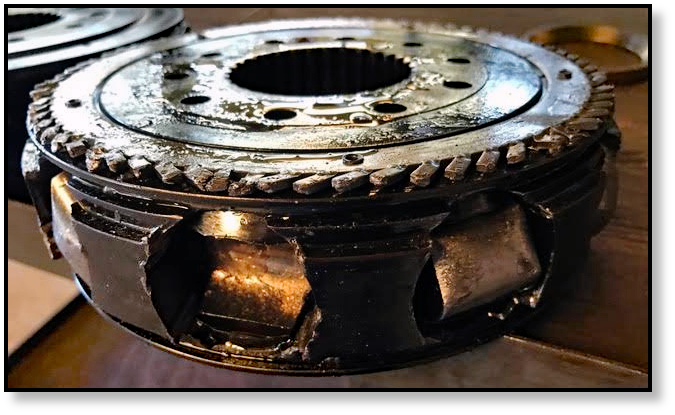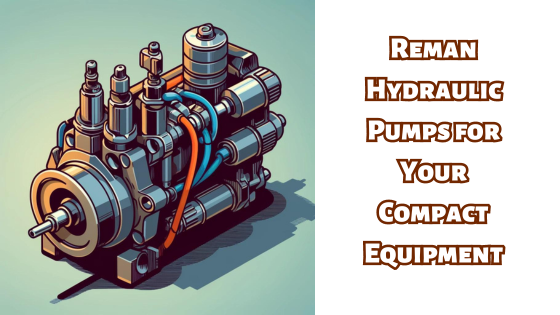Hydraulic Fluid Complications for Newer Machines
Posted by Jim Strong on Sep 9th 2021
Back in the day, you could grab a inexpensive bucket of hydraulic fluid from your local Tractor Supply and use it without a problem. While that may still work for older machines, it can cause some serious problems for newer ones. Find out why!

Here are a few other Shop Talk blog posts you might enjoy:
- Hydraulic Drive Motor Contamination: What You Need To Know
- Travel Drive Motors: A Bearing Gone Bad
- Does Your Skid Steer Drive Motor Need Service?
In newer machines, contamination is a growing problem. While much is to be said for the tough equipment our fathers and grandfathers used, modern models do offer better performance, are more energy efficient, and are able to run at higher pressures. And those improvements come at a price: these machines must have cleaner hydraulic fluid.
Components Clearances
There are several reasons the hydraulic systems modern CTLs, SSLs, and mini excavators offer high power and more efficiency. The reason we rarely think of, however, is the tighter clearances used in hydraulic motors, pumps, and other components. And those tighter clearances mean great performance when everything is in good condition, but they are extremely sensitive to hydraulic contamination in the form of particles.
So what kind of clearances are we talking about? According to Parker Filtration's Handbook of Hydraulic Filtration, anti-friction bearings can easily have a clearance of 0.5 microns while plane bearings usually have a clearance on the order of 1 to 25 microns. Gear pumps can have clearances that range between 0.5 - 5 microns while hydraulic motors can have clearances ranging between 5 and 40 microns.
Tiny Particles = Big Trouble
Particles as small as 5 microns can, among other things, damage your hydraulic equipment. For reference, 5 microns is about the size of a human red blood cell.
And think about this: the smallest particle we can see with the naked eye is 40 microns, 8x larger than the contaminants that can do so much harm. That reminds us that just because our hydraulic fluid looks clean doesn't mean it is!
Abrasive particles will accelerate the rate of wear of those critical components until the benefits of tighter clearances are completely lost. Eventually you'll notice a loss of power, and increased cycle times. And the typical operator won't even notice cycle times have increased until they're 20% higher. By that time, significant damage can take place. And abrasive particles aren't the only problem. Softer particles can be trapped in clearances, clogging up ports, stopping up valves.
The most common type of final drive motor affected is usually those with a radial piston hydraulic motor. The picture below shows a seriously damaged unit that was totaled. It took a while to get this bad.

Particle Contamination
So what are these particles? Well, they can take a wide variety of forms:
- Dirt
- Sand
- Grit
- Paint
- Cloth fibers
- Rust
- Pieces of degraded seals
- Metal
And, to make matters worse, your final drive or pump generates even more particles as it begins to wear. This creates a harmful cycle of damage that can destroy your final drive.
Preventative Measures
Here's the bad thing: the hydraulic fluid you put into their machine -- even if it is poured directly out of the manufacturer’s container -- can already have contamination in it. And its the kind your can't see with the naked eye. This is why it is so important that you avoid purchasing cheap hydraulic fluid. You may think you're saving money, but in the long run you aren't.
Even if you invest in good quality hydraulic fluid, you still need to be careful about how you store it. It needs to be thoroughly sealed and should never be exposed to the elements. Remember that dust and other debris can gather on the lid and fall into it when opened. And never use a rusty hydraulic fluid container -- that will introduce so many rust particles into your system.
Conclusion
Keep in mind that new machines require much cleaner hydraulic fluid than older ones, and avoiding cheap hydraulic fluid can save you a significant amount of money in repairs and overtime.








